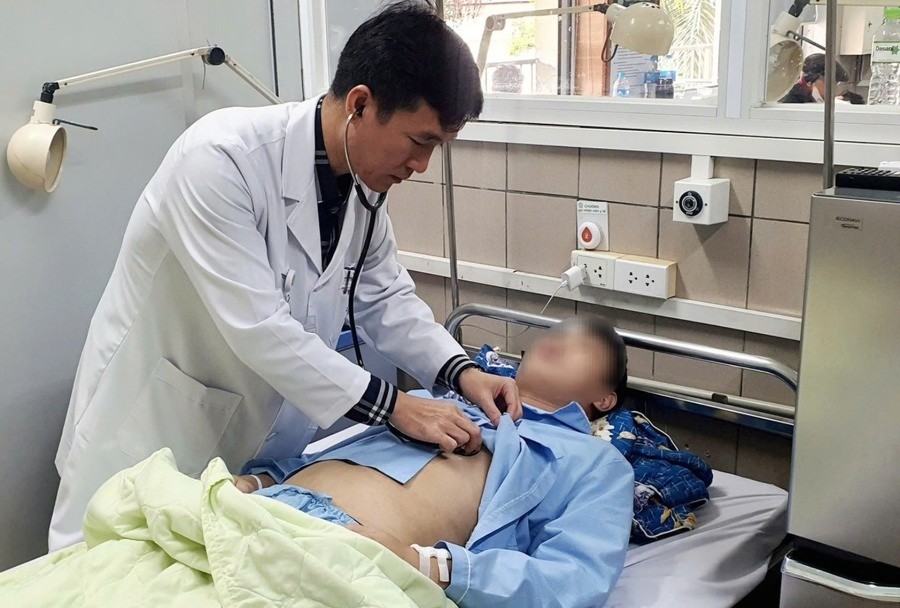
Diagnosis at… late stage
Recently, Xuyen A General Hospital (HCMC) announced that it had successfully transplanted a kidney for a TTNT patient (27 years old) with end-stage renal failure due to bad living habits for many years.
Through medical history, patient T. said that he often stayed up all night and slept during the day, many nights staying up all night to study. In addition, the patient often drank soft drinks instead of water and ate at night regularly.
In 2024, T. began to feel unusual signs in his body such as insomnia at night, only being able to sleep for about 2 hours each night, frequent pain in the bones of his arms and legs, difficulty breathing, swollen legs, and frequent coughing with phlegm. However, thinking that these symptoms would go away on their own, the patient did not go to the doctor.
In June 2024, while working, T. fainted and was taken to the emergency room by friends. There, doctors announced that the patient had end-stage renal failure. Since then, on average, three times a week, patient T. was taken by his family for dialysis, but his condition did not improve.
After many consultations and coordination with experts from Cho Ray Hospital, in May this year, the kidney transplant surgery from a mother to her child was successfully performed at the hospital. After the surgery, the health of both the donor and the recipient were stable. T. recovered 90% of his health, and his kidney function returned to normal. The patient no longer had pain in his arms and legs, and especially, he was able to sleep well and deeply.
Doctor Duong Minh Tuan - Department of Endocrinology and Diabetes, Bach Mai Hospital also shared about the case of kidney failure of patient M.
(21 years old) - a final year student at a university in Hanoi . For many years, to cope with the pressure of studying and taking exams, this male student often used painkillers combined with energy drinks to stay up late to study. This seemingly harmless habit has caused serious damage to M's kidneys.
By the time symptoms such as vomiting, swollen legs and exhaustion after exams became apparent, the disease was already in a severe stage. At the time of hospitalization, M.'s kidney function had dropped to less than 20%, leading to chronic kidney failure.
The Center for Nephrology and Dialysis - Bach Mai Hospital also receives many young patients with kidney failure. Patient M. (30 years old) said that 5 years ago, while at work, he suddenly had symptoms of abdominal pain and nausea. After examination at the district hospital, M. was diagnosed with end-stage kidney failure.
“When I received the diagnosis, I was very surprised because I had no symptoms before, and I was still living and working normally. Now my life has been turned upside down, I want to work but my health does not allow it, I cannot even live normally…”, the patient shared.
According to Master, Doctor Pham Tien Dung - Center for Nephrology, Urology and Dialysis, the center regularly receives many cases like the above patient. There are even patients who are only 15-16 years old, but when diagnosed with chronic kidney disease, they are already in the final stage.
Dr. Dung said that most patients come too late, and everything is almost irreversible. If detected at an early stage, the progression of kidney disease can be slowed.
Doctors at the Department of Urology and Andrology, E Hospital (Hanoi) once received a patient who had to be rushed to the emergency room at midnight due to unhealthy eating habits. Specifically, the female patient NVH, 18 years old, was hospitalized due to severe pain in the lumbar region, painful urination and vomiting. H. suffered from renal colic due to a 4mm ureteral stone causing obstruction, leading to nephritis. CT scan images showed the phenomenon of "petrified kidney inflammation".
According to the sharing, H. has many typical bad habits such as being addicted to milk tea, instant noodles and being lazy to drink water. In a day, she can drink 2 cups of milk tea but less than half a liter of water. In addition, during the High School Graduation Exam, this female student was busy studying and reviewing so she stayed up late. When hungry, she chose instant noodles as her "favorite dish".
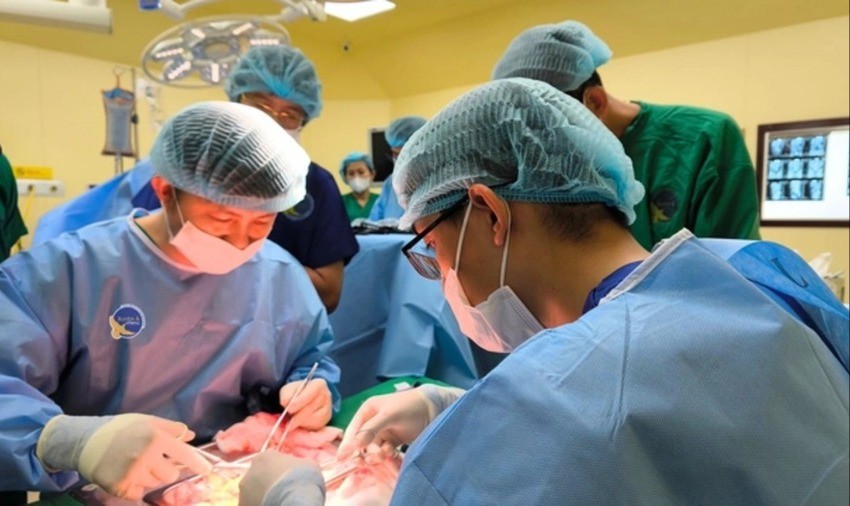
Risk factors for disease
Dr. Nghiem Trung Dung - Director of the Center for Nephrology, Urology and Dialysis (Bach Mai Hospital), said: "If the disease is not detected at an early stage, the cost of treatment will be more expensive and the time for conservative treatment will not be long.
Many patients come in at the stage of emergency dialysis, when kidney failure is very severe with many complications in organs such as: cardiovascular, respiratory... That will limit the patient's choice in kidney failure replacement treatment methods.
According to Dr. Nghiem Trung Dung, kidney disease often progresses very silently, and in the early stages there are often no symptoms. Therefore, many patients, families with conditions, and parents can completely donate kidneys, but the heart failure is too severe, the patient cannot undergo a kidney transplant. At that time, they are forced to accept the most optimal solution, which is peritoneal dialysis or artificial kidney.
At the Center for Nephrology, Urology and Dialysis, many people only discover the disease after a health check at work or after applying for a study abroad program. Dr. Nghiem Trung Dung informed that the trend of younger people with kidney failure is related to many issues. In particular, in addition to the cause of glomerulonephritis, the irregular eating and living habits of young people are also risk factors that promote early metabolic diseases. From there, it causes many diseases, including chronic kidney disease.
“Young people today use too many drinks of unknown origin, eat a lot of convenience foods such as instant noodles with high salt content, plus irregular living habits, not in accordance with biological rhythms. Sleeping too late, being lazy to exercise leads to obesity. These are risk factors for many diseases, including kidney disease,” emphasized Dr. Nghiem Trung Dung.
Not only kidney disease but also many other diseases, the only way to detect early is to have regular health check-ups. However, many people do not have this habit, even lazy and afraid to go to medical facilities for health check-ups. According to experts, with chronic kidney disease, early detection will bring many benefits.
In case of end-stage renal disease, there are 3 options: hemodialysis, peritoneal dialysis and kidney transplant. Regardless of the choice, the burden of the disease will follow the patient and his family for the rest of their lives.
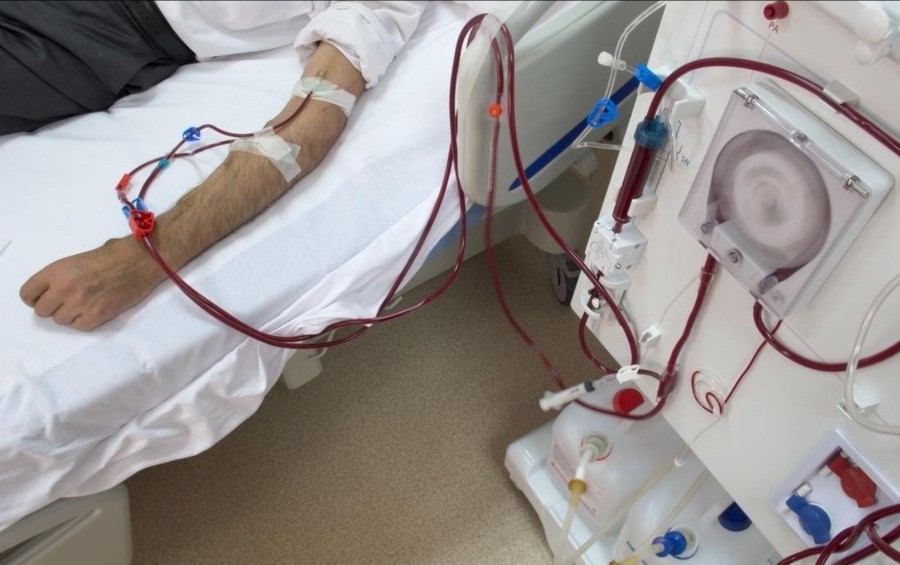
Staying up late - A dangerous "culprit"
According to Dr. Ho Tan Thong - Nephrology - Dialysis Unit, Tam Anh Medical Examination and Treatment Center, District 7 (HCMC), staying up late will disrupt the sleep cycle and negatively affect kidney function. People who have the habit of staying up late are at high risk of kidney failure.
The kidneys rely on sleep cycles to regulate their workload, such as filtering waste and toxins from the blood. While staying up late is not a direct and immediate cause of acute kidney failure (acute kidney injury - AKI), it can significantly increase the risk of chronic kidney disease, which can progress to end-stage renal failure over time.
If you have early-stage chronic kidney disease, staying up late can worsen your current condition and accelerate progression to later stages. End-stage renal disease is the final stage of chronic kidney disease. At this point, the kidneys have lost almost all of their ability to function, and the patient must undergo dialysis treatment to stay alive.
Several studies have also shown that chronic sleep disturbances, including short sleep duration and poor sleep quality, may increase the risk of developing chronic kidney disease and may accelerate the decline in kidney function. Specifically, sleep deprivation may contribute to metabolic disorders such as obesity and high blood pressure, which are known risk factors for chronic kidney disease.
The kidneys are responsible for regulating various bodily functions throughout the day and night, including waste filtration, fluid balance, and hormone production. These processes are coordinated with the sleep-wake cycle.
Staying up late disrupts this natural process, forcing the kidneys to work harder when they should be resting. Having to “work overtime” for long periods of time tires the kidneys and can cause them to lose function.
According to experts, in the past, kidney failure was often caused by bacterial infections such as streptococcal nephritis. Currently, with the development of antibiotics, the cause of kidney failure due to inflammation has decreased. However, another extremely dangerous cause of kidney failure today is food. Currently, many foods use too many toxic chemicals for preservation. In principle, substances when introduced into the body are metabolized and excreted through the liver and kidneys. Therefore, these foods affect the function of the liver and kidneys first.
Source: https://baolaocai.vn/vi-sao-nguoi-bi-suy-than-ngay-cang-tre-hoa-post649840.html



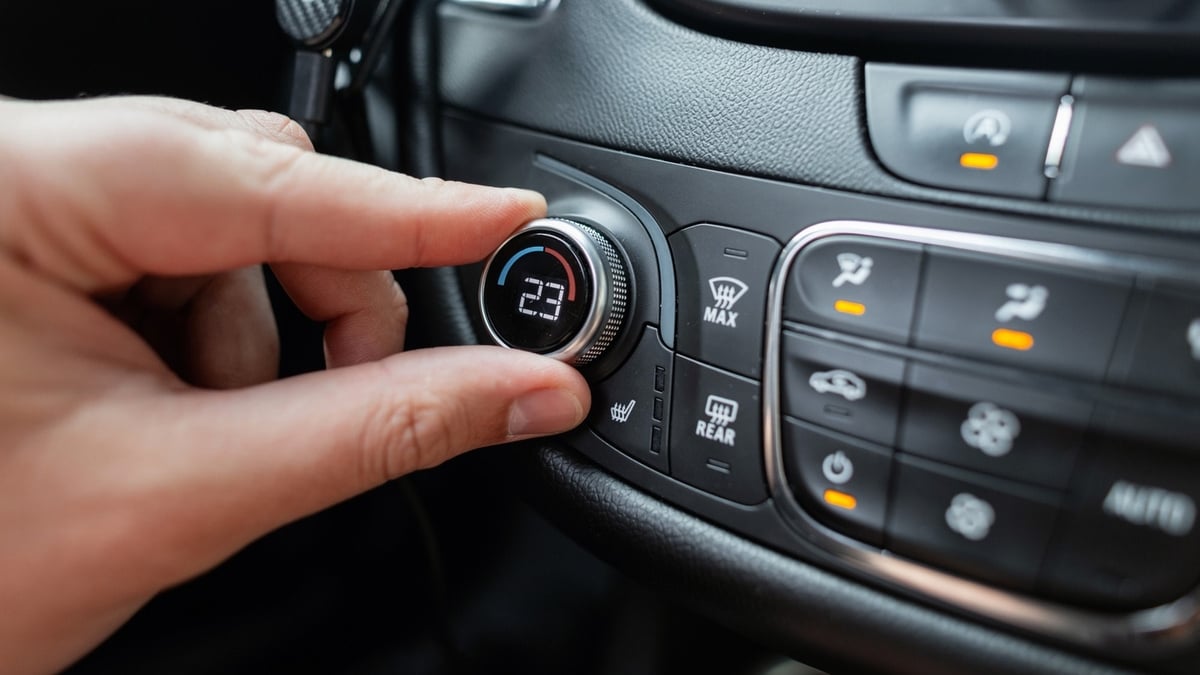

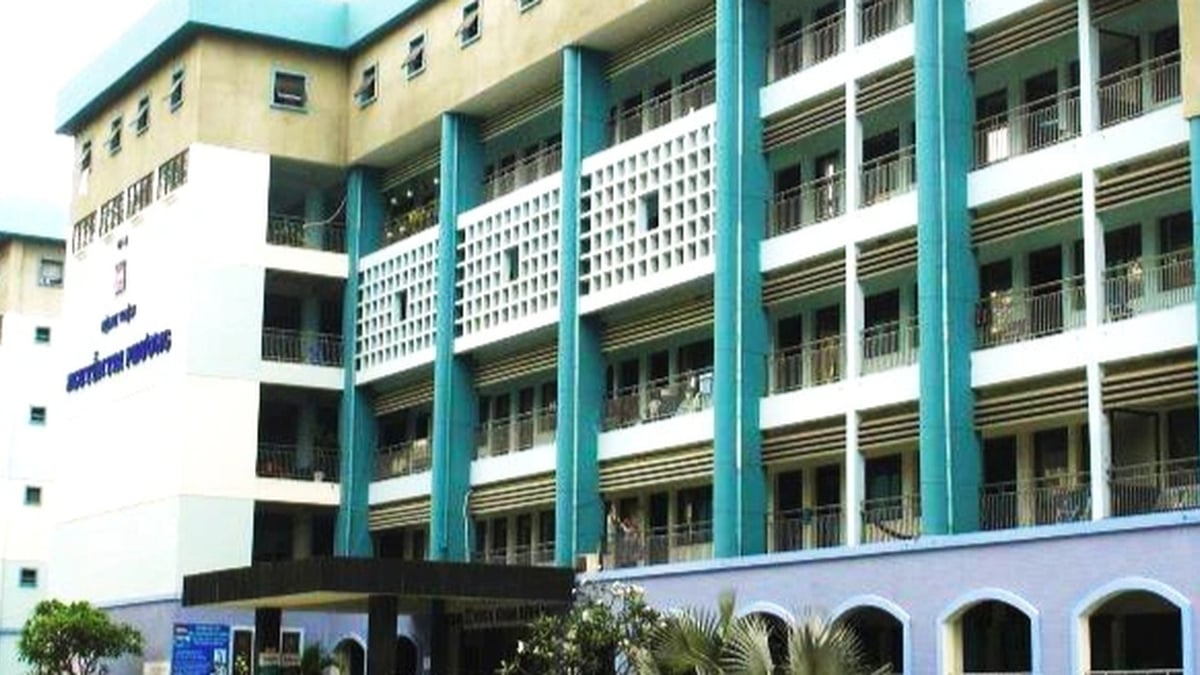


















![[Photo] National Assembly Chairman attends the seminar "Building and operating an international financial center and recommendations for Vietnam"](https://vphoto.vietnam.vn/thumb/1200x675/vietnam/resource/IMAGE/2025/7/28/76393436936e457db31ec84433289f72)










































































Comment (0)